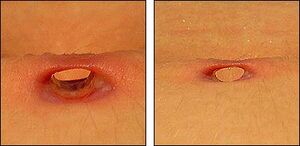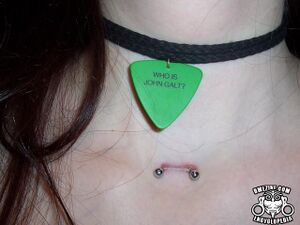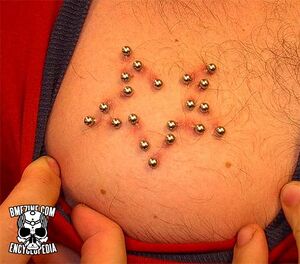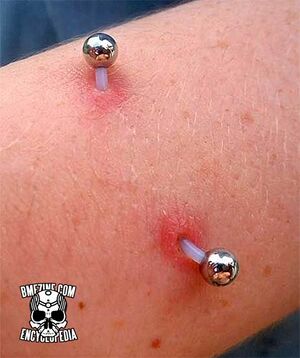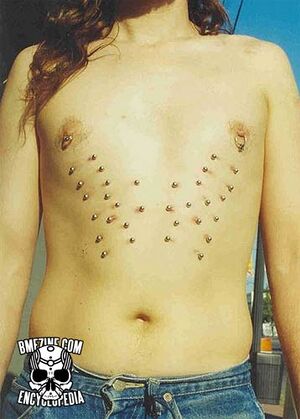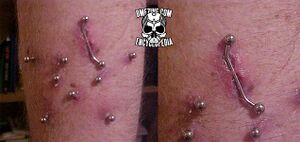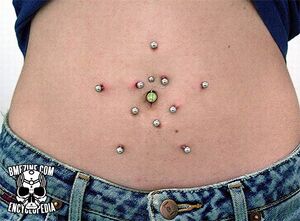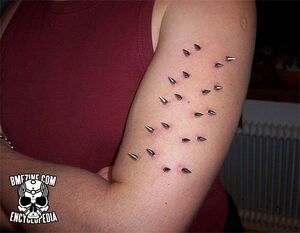Rejection
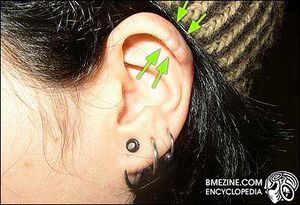
Given the choice, your body doesn't want foreign objects inside itself, and that includes piercings. Rejection occurs when it is "easier" for your body to push the piercing out like a splinter than it is for your body to heal a fistula (skin tunnel) around it. Rejection is common among surface piercings as well as navel piercings and eyebrow piercings among others — the photo to the right shows a pair of scars (in the helix) that are resultant of a pair of cartilage rings rejecting.
Rejection is affected by placement, blood flow, irritation and abuse, as well as your general health. The healthier you are, the less likely you are to have problems. The scalpelled navel below (0ga) began rejecting after three months of life, a car crash, and poor health. The madison rejected due to excessive movement at the site of the piercing.
It should be noted that of the piercings pictured above, almost all of them will reject, leaving scars that the person probably does not want. You can already see the rejection happening in some of the photos by observing the red scar tissue forming at the holes. Please be sure to visit the entries on surface bars for more information.
